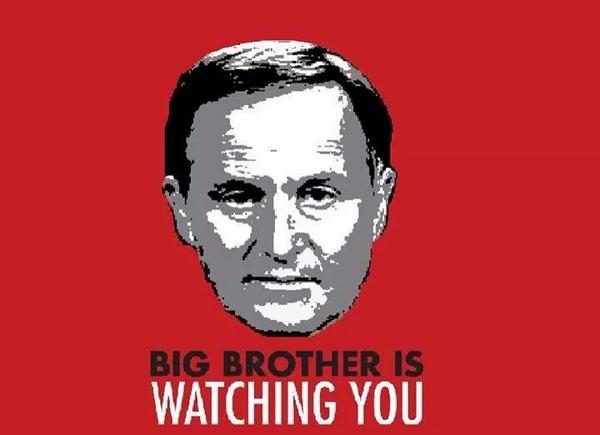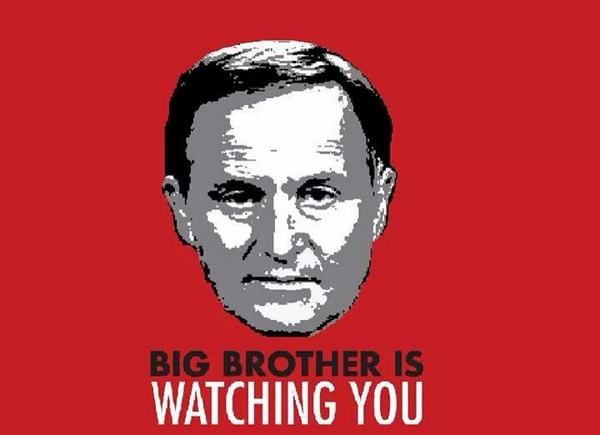
When New Zealand amended the Security Intelligence Service (SIS) Act in 1996, it was the first significant change in almost 20 years. The 20 years since that amendment have seen a constant stream of law changes extending the powers of the country’s spies. The Intelligence and Security Bill currently before Parliament is the latest of these. In this series of three articles, I outline why I think this Bill represents the most disturbing attack to date on the rights and freedoms of New Zealanders.
Part Two can be found here. Part three analyzes some of the more disturbing aspects of the Bill and argues that it represents a threat to democracy in New Zealand.
Part Three: Spies Become Untouchable
The New Zealand Intelligence and Security Bill is the culmination of twenty years of increases in the powers of New Zealand’s spy agencies. It gives them everything they could hope for. The Bill radically broadens the focus of the SIS and the GCSB so they can run operations on almost anything. It allows them to do literally anything to advance on operation or to cover it up. It allows them to co-opt anybody else into an operation. And it grants immunity from prosecution to everyone involved.
The broader scope comes from the Bill defining “national security” to include protections against the following:
- “potential threats to New Zealand’s status as a free and democratic society from … foreign interference”;
- “potential threats that may cause serious harm to the … quality of life of the New Zealand population”;
- “unlawful acts or acts of foreign interference that may cause serious damage to New Zealand’s economic security or international relations”;
- “potential threats to the integrity of information … of critical importance to New Zealand”.
Political campaigns that include any acts of civil disobedience and demonstrations where people get arrested come under “unlawful acts”. Communicate with groups overseas and you’ve ticked the “foreign interference” box. Apply this to criticisms of free trade, the dirty dairy industry, the 100% Pure marketing hype or any number of other issues and you’re talking about “quality of life”, “economic security” or “international relations”. And since being seen by the spies as a potential threat is enough for them to come after you, few movements would be safe.
Spies can do anything
Once a warrant is issued, Sections 65 and 66 of the Bill give the SIS and GCSB the power to:
- “do any … act that is reasonable in the circumstances and reasonably required to achieve the purposes for which the warrant is exercised”; and
- “do any act that is reasonable in the circumstances and reasonably required to conceal the fact that anything has been done under the warrant and to keep the activities of the intelligence agency covert”.
These are open-ended powers. They exclude nothing. They do not exclude getting people to do things by using threats, or blackmail or even framing people for serious crimes. The night I caught the SIS spies in 1996, they could have beaten me up in that empty street. During their house searches, they could have planted and claimed to have found items forensically linked to the “APEC bomb”.
Normally, legislation that uses the term “reasonable” opens the door for legal scrutiny. However, in 1996 we saw the SIS (in collusion with the Inspector-General) decide that they had broken no law and so did not need to even acknowledge their involvement in the break-in. It was only a formal legal challenge that called their hand. The provisions in the current Bill would make it possible for the SIS and GCSB to go one step further and block legal challenges to their actions.
With the power to do anything to conceal their involvement, it would be arguably lawful for the spy agencies to respond to legal challenges by lying; denying any involvement in events for which they were directly responsible. And arguably lawful is all the spy agencies need. As their track record shows – the SIS in the Choudry case and the GCSB in the Dotcom case – they identify areas as grey, choose an interpretation of the law that gives them the greatest powers, and then if they are exposed claim they didn’t think they were doing anything wrong. This Bill would mean that legal challenges against the SIS and GCSB might never get past first base. In the absence of effective oversight of these agencies, legal challenges were all we had.
To further strengthen the position of the spy agencies, the new Bill includes several immunity clauses. In one of these, spies are given criminal immunity “for any act done in good faith in carrying out an authorised activity” as long as they “reasonably believed” it was necessary and it was done “in a reasonable manner”. The core of this is a subjective test, that is, it turns on what the agent believed was necessary. If agents claimed fear for their lives or said they thought that a top secret operation was in danger of being exposed and other agents put in jeopardy, there is no chance that the Director of a spy agency would allow them to be prosecuted in open court.
Privatising spy operations
The Bill also allows the spy agencies to co-opt any outside person or organisation. This provides room for contracting private companies to conduct surveillance operations. It would officially sanction the sort of arrangements we first saw in 2008 when state-owned Solid Energy employed Thompson and Clark to infiltrate and spy on the Save Happy Valley Coalition in Christchurch. The reprehensible characters who were used in this operation not only infiltrated the group but also continually advocating radical unlawful actions. Under this Bill, they would be doing this with the same powers and immunities as official government agents.
The Bill has are no protections regulating how intelligence obtained by third parties (like Thompson and Clark’s narcs) is assessed, fact checked or evaluated. The only regulation regarding outside information is the clause that authorises spy agencies to receive stolen information. The Bill also exempts spies from prosecution for receiving information that has been obtained through the use of torture or other human rights abuses if they had “no reason to believe” it had been obtained this way; a provision that appears more concerned with protecting spies than stopping information obtained by torture from entering the system.
Control of information
Another disturbing incident that this Bill would authorise is Westpac’s 2015 hand-over of Nicky Hager’s banking records to assist the Police efforts to punish him for the embarrassing revelations in Dirty Politics. This Bill amends the Privacy Act so that any agency holding private information can release it if they can be led to believe (another subjective test) that it is needed to protect national security. No warrant required; just a word in the ear of the right person, make them think they’re in on a secret mission to thwart terrorism, and you’re in.
Not only does this Bill enable the state to gather more information about us, it also prevents us from accessing information from the state. One of the grounds in the Official Information Act (OIA) for withholding information is that “would be likely to prejudice the security … of New Zealand”. The broadened definition of security in this Bill will, therefore, have a flow on effect when it comes to OIA requests.
Although the spy agencies have regularly exceeded their powers, there is nothing in this Bill that improves the public’s ability to hold them to account. There is a claim in the Bill that nothing in it “limits the right of persons to engage in lawful advocacy, protest or dissent in respect of any matter” but that is simply not true.
Democracy under threat
The bottom line is that the culture of the country’s spy agencies, unreconstructed since it was moulded by right-wing Cold War ideology, is one that views progressive people and groups with suspicion. Even during New Zealand’s nuclear-ships stand-off with the US, they have always adhered to a geopolitical perspective that is thoroughly aligned with the interests of Washington. These are agencies that do not even trust Labour Prime Ministers.
In the name of waging the war on terror, the SIS and GCSB have been given far more instrusive powers even though the actual risk of terrorist activity in New Zealand is very low. New Zealanders have every reason to fear that this Bill will enable these agencies to continue to target people exercising their legitimate democratic rights.






[…] Remember if the new GCSB and SIS powers go through, they can deputise any agency to share their legal immunity if committing crimes. […]
NZ has gone fully Orwellian, and this item is just more confirmation of the fact.
‘The broader scope comes from the Bill defining “national security” to include protections against the following:
“potential threats that may cause serious harm to the … quality of life of the New Zealand population”
It is now abundantly clear that central and local government constitute the biggest causes of serious harm and the biggest threat to the quality of life of the New Zealand population.
Everything central government and local government promote -tourism, petroleum-driven transport, consumerism, intensive industrial farming etc.- cause serious harm to the air, water and land in the short term and maintain NZ on the trajectory that leads to massive overheating and stupendous sea level rise within decades.
At the time this UNIPCC report was compiled 2oC global average temperature rise and 25 metres of sea level rise associated with 400 ppm CO2 were locked in.
http://www.ipcc.ch/publications_and_data/ar4/wg1/en/ch6s6-3-2.html
Another 9 years of economic and environmental madness puts us on track for 450 ppm atmospheric CO2 before 2030, 3oC to 8oC rise in average temperature, and well over 30 metres of sea level rise within decades.
Needless to say, all government policy is geared to ignoring reality and making no preparations for the actual future -one of ever-increasing economic hardship accompanied by environmental collapse.
where is the Labour Party and the mainstream media on this?
Thanks for your ongoing work over the years , David. When the bill passes, as I feel sure it will, it will be up to us to get on with arranging for a government that will repeal it. It will probably take more than one election cycle to put right what has been put wrong for as long as this has.
We need to know before next year’s election who is prepared to reverse this and the numerous other bills that have curtailed peoples rights. Given that Labour put some of the bills in to action then I am not holding my breath on them reversing anything.
re “In the name of waging the war on terror, the SIS and GCSB have been given far more instrusive powers even though the actual risk of terrorist activity in New Zealand is very low. New Zealanders have every reason to fear that this Bill will enable these agencies to continue to target people exercising their legitimate democratic rights.”
Where is Radio NZ on this?….not a peep…do they have the guts to face up to what is happening in New Zealand now?
However they are still doing a retrospective and analysis …and continuing the cold war on Russia 30 to 60 years ago.
Well done RNZ!..from RNZ yesterday:
‘A family divided by the Berlin Wall’
http://www.radionz.co.nz/national/programmes/ninetonoon/audio/201821332/a-family-divided-by-the-berlin-wall
‘Sound Archives: The 60th anniversary of the Hungarian Revolution’
http://www.radionz.co.nz/national/programmes/afternoons
Comments are closed.